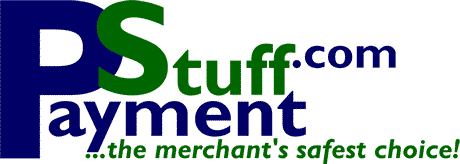
Things You Should Know
Is
it e-commerce? That will be $5000 please!
Visa and MasterCard have a couple of new transaction types that identify
transactions as being acquired through a website. If you currently accept
internet transactions through a Payment Gateway (verisign, authorize.net,
etc) you shouldn't have anything to worry about.
If, however, you are like most small e-commerce sites and don't use
a gateway, you could be putting your company at risk for a hefty fine.
You are at risk if you are receiving credit card information from your
website and keying it into a terminal, software, or web-based system
and not specifying it as an e-commerce transaction. Check with your
processor today to see how you can come into compliance. According to
our sources, Visa and MasterCard have people scouring the web daily
just seeking this type of transaction. The fine
can be as much as $5,000 for this violation!
Manual imprinters are still a necessity for all retail businesses. Using them on key-entered sales will help protect you from costly chargebacks. Dig out your old "knuckle-buster" and keep it (along with sales slips) close to your register.
Your ability to collect on a credit card transaction hinges on your ability to prove you were authorized to perform the transaction. Three things are required to defend your case in the event of a chargeback: An Electronic (magnetic strip read by terminal) or Manual (physical) Imprint of the card (this shows you had the card present), an approval authorization # (this shows the transaction was approved), and a signature on the receipt (this shows that the cardholder accepted the charges). Anything short of these three won't do.
Visa and MasterCard issue special cards to companies and government entities. These cards are called Corporate, Business, and Purchasing (or just "P") cards. These cards offer low or even no cost enhancements to the cardholding companies. Typically these cards will cost merchants from .75%-1.5% above the regular swiped rate. This surcharge can be reduced or eliminated if you are specifically setup for them. The setup involves your processor downloading your terminal with a program that asks for additional information anytime one of these cards is swiped or keyed-in. If you accept many of these cards, your costs may be much higher than necessary. Check with your processor for details. If they don't support it, find another processor!
Both Visa and MasterCard offer a security feature called AVS, or Address Verification Service. This feature has been implemented to give the merchant a tool to help deter fraud. This simple process simply involves comparing the cardholder's zip code against what is on the issuing bank's records. This procedure is only needed for transactions which are keyed-in, as they are particularly risky. If its a match, no problem. If it comes back without a match, YOU have to make the ultimate decision. If the card is present, it is imperative to get a manual imprint of the card.
When shopping for merchant services, make sure to get every single tiny charge in a formal proposal on the companies letterhead. If it looks good, make sure the final contract is identical to the original proposal prior to signing. (a proposal on the back of a bevnap or a hotel notepad probably doesn't meet our definition of "formal written). As an extra precaution, ask for references that are near you or that you might be familiar with.
Merchant Services agreements should not be entered into lightly. They are often for long periods of time and can have severe penalties for early cancellation. In addition, they will almost always leave room for rate increases. If a company must "lock" you in, make sure it makes sense for your business.
|
|
|
|
